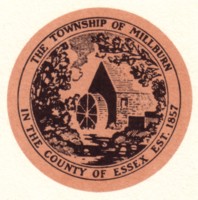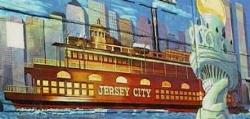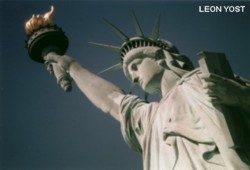 |  |  |
|
| ||
 |  |  |
 |  |  |
|
| ||
 |  |  |
|
|
|
The Dawn of the Great War By the Millburn Centennial Committee
Originally appeared in 1957 |
 |
|
|
|
If the Act of Incorporation of 1857 dropped the curtain on the prologue, then the First Act may be said
to have ended on that day in 1917 when, like hundreds of other small towns across the land, Millburn
Township awoke to the realization that it was a vital unit in a world power with a war to be fought and
won. All the pros and cons of the long argument were finally resolved, and with goodwill and enthusiasm
the people took up their new burden. Several young men, and a few girls, enlisted immediately. Organizations, cutting across sectional and religious lines, sprang up almost overnight to do their part. A Red
Cross unit was formed and the members met regularly to roll bandages and perform other required tasks.
Old knitters revived their long unused skill and taught new knitters, and knitting bags became standard
equipment for all Millburn females. Home-knitted mittens, helmets, wristlets, socks, and sweaters, in
khaki or blue, left town in an endless stream. Victory gardens were cultivated on the fields on Millburn
Avenue approximately where the athletic fields are now located.
A Home Guard was formed of those males, too young or too old to join the armed forces, and met for drill in the vacant fields adjacent to the Fandango Mill. It proved its worth during the time of the Morgan, New Jersey, explosion when it helped evacuate that town's civilian population. Many were brought to Millburn where a soup kitchen was set up and shelters provided for them until they could return to their homes. Postmaster Edward Lonergan was appointed to the Irvington Draft Board which had jurisdiction over Millburn. Later he had to resign because as Postmaster he had to assume the duties of Township Intelligence Officer for the Department of Justice. Edward Pennell was appointed in his place. However, the war days of 1917-1918, in spite of shortages in sugar and other staples, many inconveniences, and the constant anxiety of the times, were sometimes lightened with a thrill and glamor unknown to those who remember only the grim and songless determination of the Second World War years. Each contingent of campbound boys was sent off with speeches, gifts, a parade, cheering crowds, and a band playing, "Over There", "It's a Long Way to Tipperary", "Keep the Home Fires Burning", "There's a Long, Long Trail", and other of the many war-inspired songs. A cavalcade of cars conveyed the recruits to Newark where they boarded trains for their destination. But the tragedy of war struck home when word was received of the death of the young clerk in Campbell's drugstore. Guy Bosworth, one of the first boys to enlist, was the first casualty, it is believed, not only of Millburn, but of New Jersey. He was lost at sea in October, 1917, when his troopship, "The Antilles", went down on its way to France. The second boy, Frank Nazzaro, was killed in action a few months later, and Joseph Boslavage, who had been Guy Bos- worth's fellow clerk in Campbell's, was killed shortly afterward. Three trees in Taylor Park are now their memorials. The end of the war brought the boys back home to the biggest parade and reception the town had ever seen. Finally, the paraphernalia of war was packed away, but the old days and ways did not return. A new implement – the automobile-became available to every – one. No longer need a man live near his job. The great trek to the country began and Millburn lay well within the path of the first migration from the crowded cities. |
|
|
|
|
| 08/18/2012 11:10 PM |
|
Computer Repair Blog XP Local Area Connection stuck at Acquiring Network Address |
 Your Ancestors' Story |
 Bruce Springsteen's Jersey Shore Rock Haven! |

|
UrbanTimes.com |